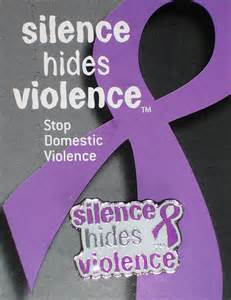There are occasions when one is reminded that many people in Poland, including those in positions of power, are batshit-crazy, Tea Party-esque. Such an occasion is today, where the UN convention on violence against women is being discussed in parliament. This convention is facing a opposition from PiS members, as well as from some PO members, all concerned about the intrusion into family matters, or the “promotion of feminism and homosexuality”. This should be seen as part of the backlash against “gender” by fundamentally confused and reactionary people. The battle for power in Poland is seeing women losing out. (Strangely enough, it is many women who are battling against “the ideology of gender”.)
Interestingly, a study by the EU agency for fundamental rights into violence against women (link) shows Poland to have one of the lower percentages of violence against women. This is strange, whereby (see p63 of the report) Polish women are less likely to go to the police about being attacked by their partners, while at the same time, a majority of those attacks result in injuries. I would put this down to a societal lack of support for female victims of domestic violence. As someone said (I think it was Agnieszka Graff), the family is seen as a holy institution in Poland, and therefore matters of rape and domestic violence is massively taboo. While “the defense of the family from the plots of the Homosexual/Jewish EU” can attract over 10,000 to their marches in Wrocław, Manifa gets less than a 1,000.
You know? I’ve read about people who tackle family histories, families whose members have been involved in human rights abuses on a large scale (say, Otto Globocnik), and see how it is the grandchildren who are most likely to deal with this issue. For their parents, such things were a massive taboo. Being a grandchild offers one more distance. It takes courage not just for victims of domestic violence to stand up against it, but for other family members to do something about it. Or their friends. I’ve witnessed abuse of people by family members myself, and have seen many people walk by, or say nothing. What stops us from acting?
In any case, we lack research into violence against men. I would guess that Polish men are even less likely than women to go the police as the the tough-guy gender role which makes violence against women more likely is also more likely to make male sufferers of female violence to be ashamed. Certainly, cases I know of elsewhere show that male victims of domestic violence who go to the police often face prosecution themselves, as the police assume them to be the guilty parties.
Glen Poole in his excellent book “Equality for men” points out that, globally speaking, men are four times more likely to die a violence death than women or girls. In the UK (to offer a comparison), boys are 25% more likely than girls to die before their 5th birthday. In Wales and England boys aged 10 to 15 are twice as likely as girls to be a victim of violent crimes. Worldwide, 80% of victims of violent death are men.
Dealing with domestic violence, in the UK, 50% of those who are attacked by their parents are male, 30% of those injured are male, and 25% of those who are killed. Worldwide, half of domestic violence is carried out by women, while only 7% of people convicted are female.
Note that I’m not saying this in order to try to silence discussion about male violence against women. Some men do that. It is also not order to relativise the issue of domestic violence; domestic violence by male and female sexes takes place in the context of men being more likely to have power in life (though at the same time more likely to not have power, i.e. by being homeless, having mental health problems, being in prison). Domestic violence in both cases is maintained by silence, whoever does that silence.
In any case, one thing I can offer is that change will only happen regarding both issues if people are prepared to break those taboos, and indeed, speak out against people they know. Thing is, those who break taboos are often not liked, and will be outsiders in societies. Who is prepared to do that?
